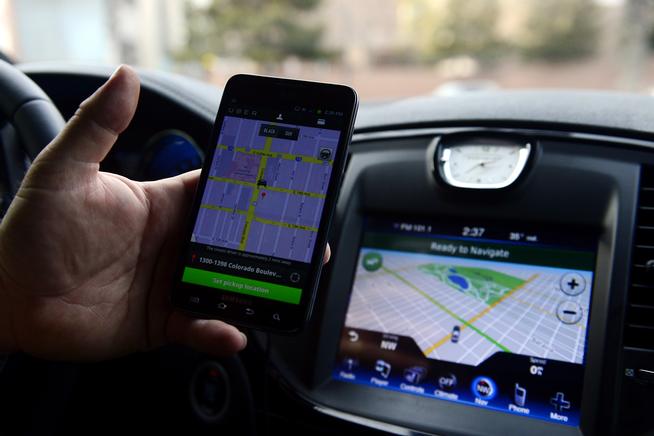![Uber is one of several ridesharing apps that have become popular. [AP/Michael Virtanen]](http://www.jstudentboard.com/reporter/wp-content/uploads/2014/09/UBER-300x200.jpg)
According to Washington Post, the California chapter of the National Federation of the Blind (NFB) filed a civil rights suit accusing Uber drivers refusing rides and mistreating blind people with guide dogs. The suit alleges that drivers have abandoned blind customers in harsh weather and charged cancellation fees even after refusing rides to the blind. The Federation said it was aware of more than 30 occasions in which blind customers were denied rides because they had service animals, and one driver has been accused of putting a guide dog in his trunk.
However, a statement reported by the San Francisco Examiner, Uber stated that “the Uber app is built to expand access to transportation options for all, including users with visual impairments and other disabilities” and that it would terminate drivers who discriminated.
This incident has escalated the ongoing debate of whether Uber is a good choice for customers and workers. Last year, a UberX driver struck a mother and her two children, killing one of the children. This year, a Chicago woman sued a Uber driver for sexually assaulting her. Also, on September 9, California drivers protested against Uber cutting the mileage rate by more than half. The service has been sued in several US states which have accused it of operating an illegal unregulated taxi service, and it has been banned in countries such as Germany and South Korea.
“I can only feel spite for Uber taking away our customers,” said Brian Kang, a regulated taxi driver, to JSR. “I hear so many bad incidents occurring by the Uber drivers, yet more people are choosing Uber because it may possibly be more convenient.”
Christine Kim, a freshman at North Hollywood High School, is reticent about the service.
“I was always kind of suspicious of Uber because there might be so many incidents that may happen,” she told JSR. “I’m pretty sure Uber is not safe.”
However, some enjoy using Uber compared to regular taxis.
“I love Uber; I use it all the time,” Harvard-Westlake sophomore Melissa Yi told JSR.
“From all the times I used Uber,” she continued, “it was always safe and comfortable and the drivers were kind compared to regular taxis.”
Despite the debate, Uber remains the leading rideshare application. FutureAdvisor, an automated investment advisory firm, monitored 3.8 million US credit cardholders between June 2013 and May 2014 and found that 96,000 of those cardholders had taken 1.23 million Uber rides over that time period.

